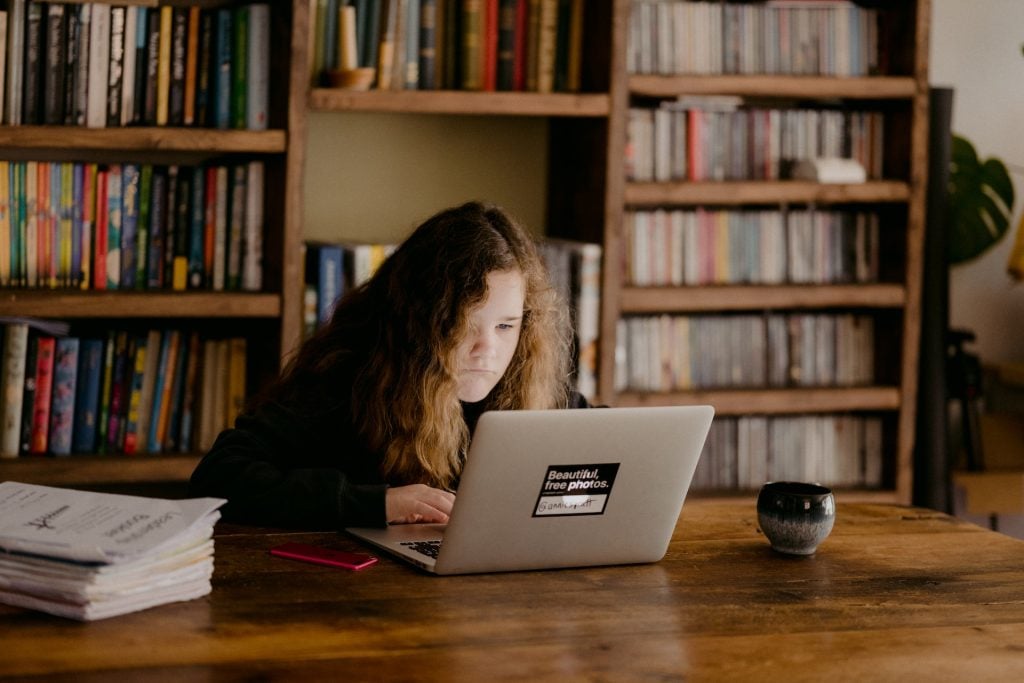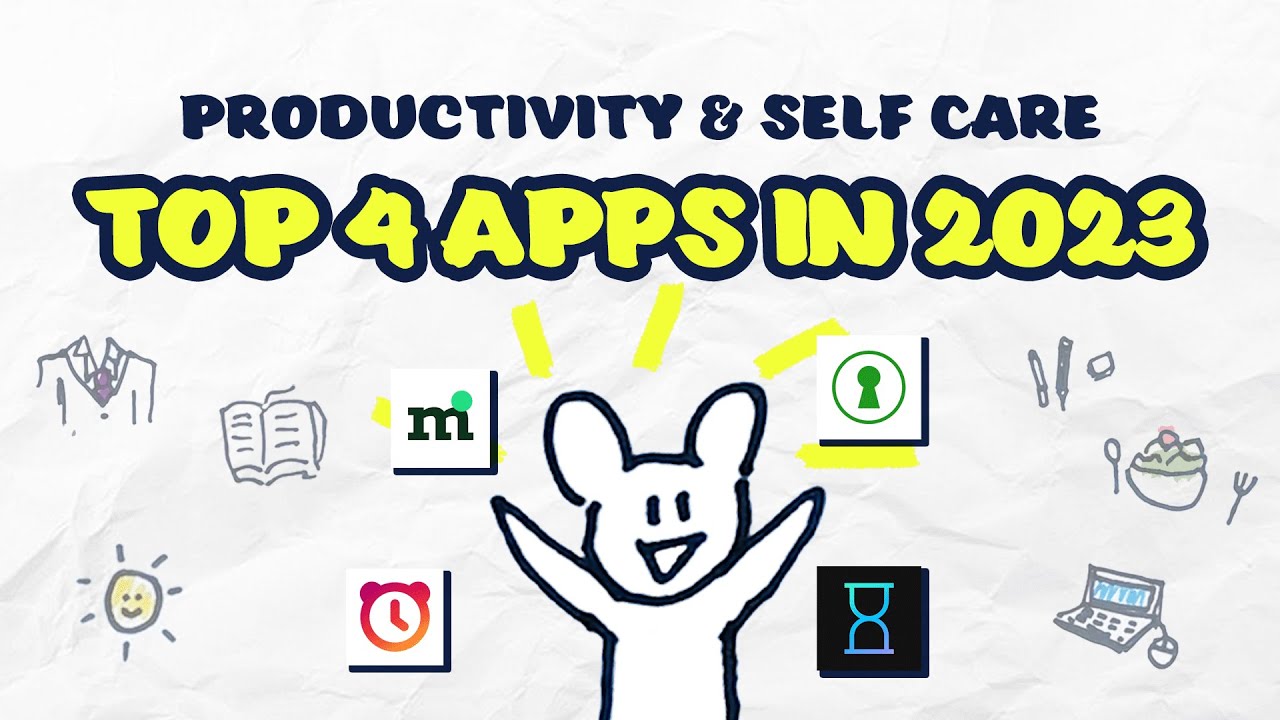
Image by Unsplash
Have you ever found yourself reading the same passage aloud in your study chair while having no idea what is happening inside your head? Moreover, despite your persistent efforts to learn the lesson, are you unable to focus on studying? That is because you lack productivity in study.
You are not alone if all of these conversation boxes are creating enormous mental tests. The majority of students struggle to devote enough time to their studies in order to solve this problem. Students complain that they find it difficult to complete daily activities because they are so monotonous.
In such instances, there should be alternatives for students to bring productivity in study and build a beneficial study routine.
It is difficult for students to manage their schedules in the present environment, where schools and universities’ education is bound to constant frame. The major goal of this article is for students to concentrate on improving their abilities and productivity levels while they are studying.
Top 4 Apps for Self Care and Productivity
Why is Having a Productive Study Routine Important?

Image by Unsplash
Who likes a routine that is boring and repetitive? Each student is endowed with a special capacity for learning and understanding. And because no two people’s fingers are the same, how can anybody assume that all pupils would operate and function in the same way?
The success of their education depends on their ability to complete their assignments effectively. Productive hours that students had invested in their topic are more important rather than the total number of hours spent studying.
Also, it increases motivation, improves mental health, and has an impact on both academic and extracurricular studies. The way students focus on studying may significantly alter when they adopt a good mentality. Here are some ways to put it into practice.
How to Increase Productivity in Study?

Image by Unsplash
1. Choose A Room That Is Bright And Open For Studying
Your choice of location has a big impact on studying. When you choose a small, closed-off area to study in, you’ll unconsciously feel tempted to put your work on hold. Your eyes will strain from it, and you’ll become tired.
You must choose a bright, light, and spacious area to study if you want to be productive. Your brain and eye muscles will remain active, and you’ll remain energized throughout the day. Choose a room that can show your capacity for learning and focus on studying.
2. Use Your Imagination
After deciding on a decent study location, attempt to add some originality to the space. Sticky notes, flashcards, highlighters, and other study aids, as well as motivating and inspiring posters of famous people, can help you stay interested in your reading. With all the necessary supplies and your creativity, you can also artistically clean your desk.
3. Begin With Your Area Of Interest
Students will readily acknowledge that they have a list of their favourite topics. Some people like doing mathematical calculations, while others enjoy language. Start your studies by concentrating more on your preferred topic. You’ll feel more productive throughout, which will help you stay motivated. After summarizing your lesson, it will keep you firmly rooted to your study desks for a considerable amount of time and give you confidence.
4. Create a 21-day Plan
Setting up a timetable is essential for making your study plan more productive. It minimizes distractions and aids in maintaining your attention on your primary objective. You’ll be motivated to perform your daily tasks and submit your homework on time. In addition to this, it will keep you constant.
5. Show Curiosity
You’ll be most successful if you start conversations and ask questions. You’ll become more active as a result, and many doors to fresh information will also be opened. Your critical thinking habits will be formed, and your communication abilities will improve. Asking questions can help you reduce the likelihood of wasting time during your study sessions.
6. Reward Yourself
Assure yourself that you will complete a job in 45 minutes and that you will treat yourself when you are done. The point is setting relevant time to focus on studying. And then give yourself permission to use social media, go for a stroll, unwind, stretch your muscles, indulge in some savoury foods, etc. Never let a busy day wear you out. Put your mental well-being first.
7. Get the help of a Professional Instructor
Finding a qualified instructor is the greatest course of action to take if you are committed to your topic and want the right outcomes. This phase is essential for getting the most out of your studies since tutors are subject-matter experts who are renowned for bringing out the best in students.
These strategies might help one add productivity to their study routine. These techniques will help students focus on studying for a very long time while also improving their topic understanding. In the end, grasping the material thoroughly is more important than memorizing the full syllabus at once.
8. Prof. Mary Lobdell’s Efficient Time Management of Study
For 40 years, Marty Lobdell was a psychology professor at Pierce College in Washington State. Tens of thousands of students have taken classes from Lobdell during his career, and he cares about their success.
In his book, “Study Less, Study Smart,” Lobdell talks about productivity in study. He outlines a effective study method that helps the brain remember the material you are studying after seeing people prepare for a test for eight hours or more without any progress.
Lobdell advises dividing the study time into sessions that last between 20 and 30 minutes. Spend five minutes doing something you like after each practice. You might sing your favourite song, consume some snacks, or chat with a friend.
Give yourself a reward after you have finished all of your study sessions.
According to Lobdell, “things that are reinforced we tend to do more of. The things that are punished or ignored, we tend to do less of.”
9. Take Proper Sleep
Sleeping sufficiently is important. Aim for seven to eight hours each night for the typical individual. Don’t let yourself put in all-nighters when you’re studying. While it may seem that you have planned, you will almost surely pay a price when processing the information the next day.
We advise students to obtain 7 to 9 hours of sleep per night. Students who sleep for fewer hours than advised or who have a restless night are likely to be fatigued in the morning and less productive as a result. During sleeping, students should keep distractions away from them. For example, they should put on quiet their phone or, even better, avoid having it near them at all.
Maintain a schedule and wake up at the same time each day. It is best to start studying in the morning as that is when classes would typically begin. Students will benefit from having a study routine by rising at the same time each day.
For instance, students might set an alarm at a time that is convenient for them and realistic. Install a free alarm app “Alarmy” and it will help you wake up clearly and build a morning routine sucessfully.
10. Maintain A Regular Productive Study Routine
Each day is limited in time, and only a small portion of it may be devoted to studying and learning. But, all other facets of your life, such as social engagements, family obligations, and self-care, are likely to fiercely compete for your attention.
If you don’t include effective study habits into your week, the time spent studying might be random, erratic, and often at the whim of something more intriguing. To combat this, think about setting up a relaxing study area and a weekly study timetable so you can fit your studying around your other obligations.
For information to become embedded in our long-term memory, our brains need time and repetition. Each successful learning technique should include intervals of practice. Instead of scheduling a long study session on one day, try to spread out these times throughout the week and keep them brief.
A dedicated study area free from distractions may often assist with this. It would be ideal if you tried to study at the same time every week. This commitment will eventually become usual, and once it does, it won’t seem like a hassle.
To keep things intriguing and new, switch up your location. For some people, studying in the same place all the time might cause lethargy and demotivation. If you fall into such a category, make an effort to keep your study periods consistent throughout the week.
11. Take care of yourself
This best study advice is applicable at all times, not just when you need to revise for examinations. There are various actions students may take to maximize their capacity for learning, do effective study and enhance their daily well-being.
Don’t forget to schedule breaks throughout your study sessions. When you study for too long without taking a break, your session’s outcomes will suffer. After spending a lot of time at a desk, get up and walk outdoors to stretch and get some fresh air to reenergize your body and mind.
Your academic objectives may frequently be aided by exercise. Exercise and a student’s capacity to remember knowledge have been linked in studies, especially if a study session comes just after physical activity. By exercising, more neurons fire in the brain, which improves focus, energy, and attentiveness when studying.
Healthy meal is also important while learning new things. Vitamin B12 deficiency in the diet may often make it harder to remember new knowledge and lower test results. Some meals, like those strong in Omega 3 fatty acids, berries, and even dark chocolate, may enhance a person’s capacity for learning and general brain health.
Final Words

Image by Unsplash
We are aware that there are many strategies to increase productivity in study to choose from, which may be confusing. Just bear in mind that using an successful study routine will help you finish your duties and reach your objectives. The secret is choosing the framework that works best for you.
Since every one of us functions differently, there is no one productivity strategy that works for everyone. Hence, before adopting a technique often mentioned as effective study, consider your personality. Consider if you have a propensity for procrastination or difficulty concentrating, as well as your skills.
We hope that these suggestions will encourage you to pursue your aspirations and set objectives. Tell us if they were successful for you in the comments section below.



